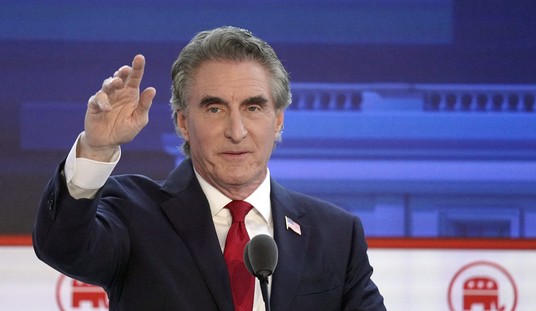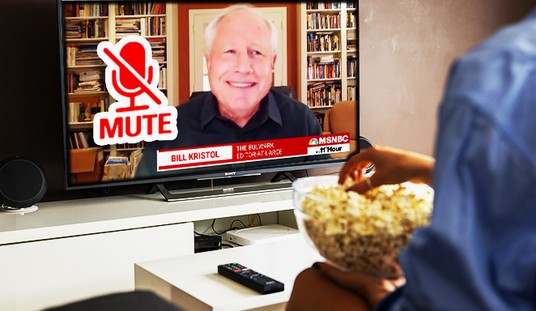Let me get some housekeeping out of the way first. I wrote an article last year when the cutting of unemployment benefits was first proposed which made some on the left angry.
Most that were upset with my take (that generally speaking, it would be good for the economy to cut it) missed the entire point which, in fact, was not an economic argument as much as it was a philosophical one. My belief was, and still is, that people will rightly hold out for a “better deal” if it benefits their family. In other words, if you get $550 per week from the state of North Carolina and are offered a job making $350 per week working somewhere else that doesn’t afford you the time to continue looking for a job you might be happier with, you would, understandably, choose to continue collecting that check.
To support this point I mentioned the for-hire signs located around the city and how they remained remarkably persistent in spite of an unemployment rate that hovered just below 9%. This wasn’t an attempt to prove that an avalanche of unwanted jobs existed, more to say that in a land of 9% unemployment, you’d think these signs would be less pervasive.
But now, the numbers are in and the postmortems are being made. NC unemployment has dropped (down to 8%) but, as many are saying, “at what cost?”
Well according to Bloomberg writer Evan Soltas, we now know that the experiment has failed.
I’ve been watching the state since July, when it cut the maximum length of benefit from 99 weeks to just 19, and reduced the weekly check from $535 to $350.
Across the country, the unemployed will lose from 14 to 47 weeks of insurance when the extension ends. Five other states will join North Carolina in providing fewer than 26 weeks of payments — the standard in the U.S until this year. What’s happened in North Carolina since July is an indication of what will happen nationwide. The picture is troubling.
Having read through Soltas’ article, I think he’s missed the lessons we can garner from this completely. This is typical for wonks who have trouble understanding the human & philosophical elements of situations like this, and also have a habit of moving the goal posts (in this case, the purpose of unemployment insurance).
Let’s start from a question Soltas takes for granted as a given and has probably given little to no thought on: What is the purpose of unemployment insurance?
Wikipedia (I know, Wikipedia…deal with it) defines unemployment thusly:
Unemployment benefits are generally given only to those registering as unemployed, and often on conditions ensuring that they seek work and do not currently have a job.
The U.S. Department of Labor defines it this way:
The Department of Labor’s Unemployment Insurance (UI) programs provide unemployment benefits to eligible workers who become unemployed through no fault of their own, and meet certain other eligibility requirements.
You may note that people are referred to as “workers” which, unless I’m over reading this, indicates that they are a person who would be working if a job existed in which they were able to work.
Now I’m sure that words like “social welfare” and “safety net” come in to play for plenty of people on both sides of the debate, but ultimately unemployment insurance exists for the purpose of providing people a stop gap measure while in between jobs.
With that definition in mind, let’s look at Soltas’ reasoning for declaring the NC “experiment” a failure and compare it to what people more inclined to the conservative view on this have claimed.
Conservative claim: Cutting unemployment benefits results in not only fewer eligible but also fewer applicants.
From the article (emphasis mine):
As intended, presumably, the number of North Carolinians receiving unemployment benefits has collapsed. It’s down by 45,000, or 40 percent, since last year. Expiring benefits aren’t the only reason for this. Far fewer are filing a claim in the first place. Initial claims are running at about half last year’s rate.
Conclusion: Conservatives were correct, unemployment benefits applications go down.
Conservative claim: Unemployment insurance encourages people to rely on government without actually looking for a job.
From the article:
To get unemployment insurance, you have to actively search for work and prove that you’re doing so. The drop in the labor force suggests that this incentive was effective. Without it, more people just give up.
Conclusion: Since people that are eligible for unemployment have stopped applying once proving they were looking for work was required, one can safely assume they were not, in fact, looking for jobs. If they were looking for jobs but found the requirements of proving it to be too onerous, then I might have some idea as to why they had thus far been unsuccessful in being hired.
Conservative claim: Extended unemployment benefits mask how bad the economy really is.
From the article:
Meanwhile, the burden of easing the financial distress caused by unemployment has shifted from public programs to private charities. According to Alan Briggs, executive director of the North Carolina Association of Food Banks, they’re struggling to cope.
Conclusion: If 5 years after the recession ended, pulling extended unemployment causes an overload in charitable need, one could surmise that the bleakness of the economy was being masked by people receiving checks in spite of having no prospects. (Side note: this also goes a long way towards proving that charity is more than capable of picking up the government’s slack on keeping people fed and I strongly encourage my readers to give whatever they can to these causes. Here’s a link to the Food Bank of NC. Please give!)
Conservative Claim: Extended unemployment insurance does not help create job seekers but in fact serves as nothing more than a substitute for charity/welfare.
From the article (emphasis mine):
“The local pantries are saying, ‘Give us more, give us more, give us more,'” Briggs said. “All that the county social workers can do now is give those in need the phone number for the local food bank.” As he told a local news station, his food banks had been “asked to be the safety net of the safety net.”
Ron Pringle, a food-bank director who oversees seven counties and 230 organizations in the state’s southeast, says they’ve seen on average a 17 percent increase in need since last year. “We’re seeing requests for food from our agencies well outside of our planned growth,” Pringle said. “Some of our member agencies have been able to meet that need, but many have not.”
“They’ve had to expand pantry hours, add additional days to the schedule, and take on new volunteers because they’re unable to meet the greater need,” he said. “These decisions have created a whole new community of folks we’re going to have to serve.”
Conclusion: With charities now busting at the seams, it seems that the Department of Labor was in the position of providing what the charities are now providing. Deeming unemployment cuts a failure is tacitly agreeing that such a role is the natural and correct role for the department of labor. In other words, that the Department of Labor has a primary function of filling the role of private charity. And this goes back to the very definition of, and purpose for, unemployment insurance in the first place.
The fact is, the NC unemployment cuts were a resounding success in terms of lowering unemployment claims, lowering government responsibility otherwise reserved for welfare & charity, and lowering the financial strain being put on the state government to endlessly assist in masking the actual state of the economy.
So what was Soltas’ conclusion?
Some 1.3 million Americans will lose unemployment benefits immediately in 2014, according to a report from National Employment Law Project. An additional 850,000 will lose them by the end of March. North Carolina just ran this policy experiment. Does Washington like what it sees?
I can’t speak for Washington, but as a Carolinian, I can say yes, I am quite satisfied with the results so far. Now perhaps the real question can start being asked: “Why hasn’t the economy recovered after 5 years of being post-recession?”
A question I look forward to hearing answered in 2014.














Join the conversation as a VIP Member